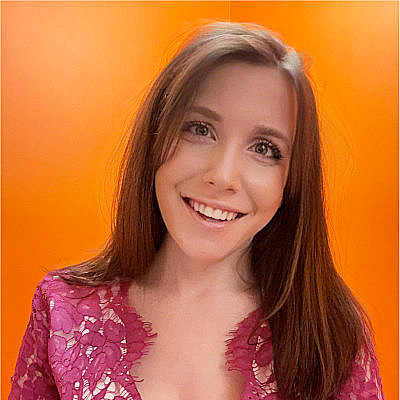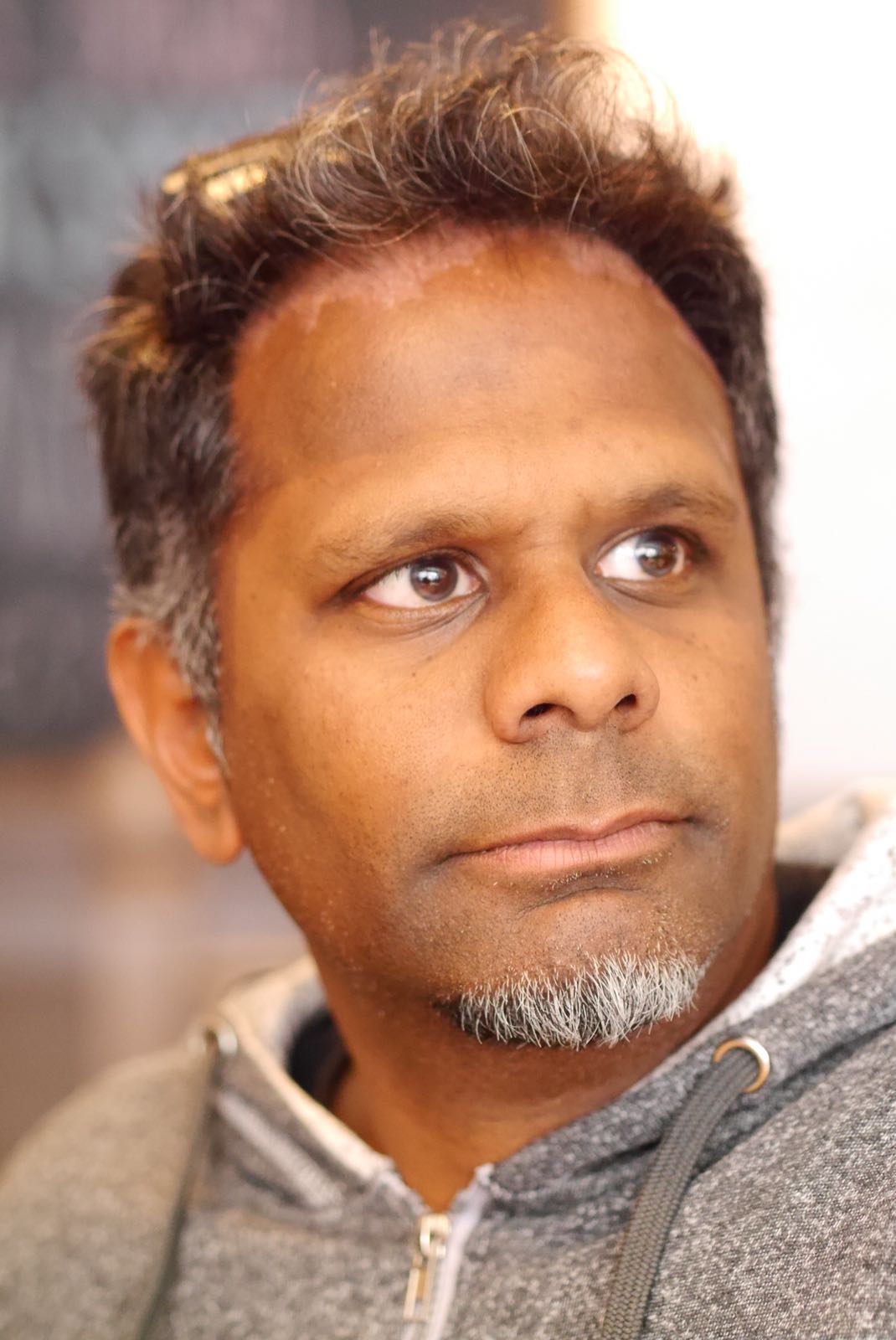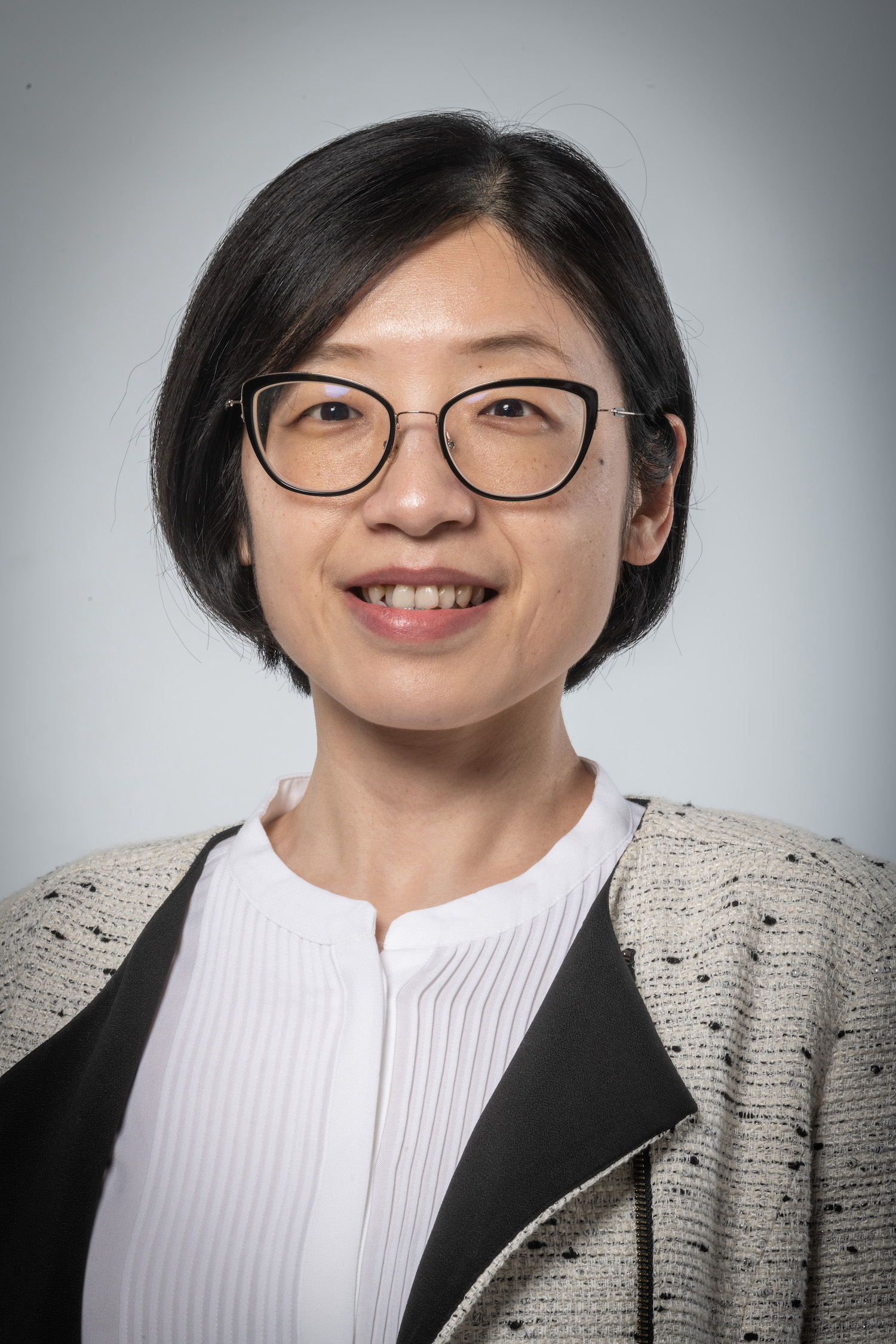AI for social good with SJSU's Yu Chen
- 0.5
- 1
- 1.25
- 1.5
- 1.75
- 2
Yu Chen: Business school.
Daryl: Welcome everybody. This is our latest episode of the Business Schooled Podcast where we talk about some of the latest innovations, what's happening in the world of business and related worlds like technology, innovation. But just some of the things that supplement any kind of learnings that you may have had around business and to bring you up to speed. And today and then got a great story to dive into. Very happy to have with me Yu Chen, Professor Yu Chen from San Jose State University. Welcome.
Professor Yu Chen: Thank you, Daryl. Thank you for having me here.
Daryl: Professor, great. Just ask you to give us a quick intro who you are, what you do, a little bit about your background.
Yu Chen: Thank you, Daryl. I'm Yu Chen, assistant professor at School of Information System Technology at the Lucas College and Graduate School of Business at San Jose State University. I joined San Jose State back in 2018 and before that received my PhD in computer and communication sciences from Swiss Federal Institute of Technology, Amazon. And then did a few years of postdoc also in the area of human computer interaction before I joined the business school. So a little bit about myself.
Daryl: All right. Is there anything that you'd share in terms of, especially when you think of human computer interaction and business, what gets you interested and excited about this space?
Yu Chen: Yeah, so actually my undergrad's and also master's studies are pretty much in computer science and coding developed systems, et cetera. It's not until I did my first summer internship at Nokia that I realized how important it is to pay attention to human side of technology. It's not just about technology itself, but also what's the role of users in human in this whole ecosystem? And that's where I discovered, oh, there's a field called human computer interaction. And right now it's closely related to user experience design research and things like that. That's what motivated me to really embark from the journey of human computer interaction. And since I joined San Jose State University, especially in the College of Business, I also noticed that of course technical from the coding and computer science perspective, that's important. And upon that we need to consider the human factor to design, in order to design the system that people are willing and happy to use and feel convenient to use. And on top of that, it is through the tool or channel of business that will allow any potential technology with great impact to scale. And that is through the tool of business that I find super powerful. That's a little bit about the connection. And the other connection I saw is in human interaction. One methodology or framework that we have used a lot is design thinking. How do you use design thinking to design a system that can address some of the problems that the creator identified. And the same with coming to business problems, society, societal problems or educational problems. So there are a lot of common issues or similarities we can find across those fields. So those are things I've just find really interesting and excited to explore.
Daryl: Right. So that's really interesting. I know that we've had, I'm glad I've had the opportunity to work with you for a few years. But I didn't understand, I know I never knew the depth of your background and especially that relationship really between, as you say, between humans, between computers. And then where that comes together around business. But it makes a lot of sense in terms of some of the projects that I've had the good fortune to work with you on. And maybe that's where something maybe that would be a good example maybe just to bring us all home and to help folks understand this relationship. So in terms of some of the more recent technologies and what you've been doing in the business school, what can you explain some of those areas that you've been focused on?
Yu Chen: Yeah, sure. So with my technology background, coming to the College of Business, one of the things I've been doing is introducing emerging technology to business students. And one of the reason is as we can see, emerging technology, for example, artificial intelligence, it is just pervading every single industry. And it's not just computer science students who need to learn and work, play an important role. And our students, future students, when they enter the workforce, they will need to keep up with all those kind of skills. So one of my intention is to bringing emerging technology, starting from artificial intelligence to business students so that they can become competent when they go to enter the workforce to contribute their own talents and skills.
Daryl: Now that's really interesting, and I know some of what you've been working through has been around also chat- based interfaces and those side of things. So can you just talk a little bit about how you've been introducing that kind of technology to business students and what's been some of the response?
Yu Chen: Yeah, sure. So I first got to know chatbots through one of the local startup companies here. It's a company called Judy. So basically it is a Lego style where they are able to, even students with no background, they're able to build a chatbot pretty fast. And then later, that's where I met you, Daryl, I got to know IBM Watson Assistant, which I think is a perfect tool to introduce to our students. Not only building chatbot, but really integrating some of the little bit of technical details for them to cultivate those skills. And that's back in 2018. And I just feel, oh, this is really cool. And then we can really see the next generation of user interface. And that motivated me to, yeah, let's try it out among our students. And the reason I feel I have the courage to do that is when I'm teaching business students, I noticed that different from computer science students I usually interact with in the past, I noticed the business student, they're really vibrant. They are very creative, they have the entrepreneurial spirit inherent within them, and they're really willing to try new things, for one thing. And for the second is, they're eager to play a role in emerging tech, especially in the Silicon Valley. And some of our students, they will merge in different roles within the high tech, Google, Microsoft, Cisco, et cetera. So they're really willing to learn those emerging technology. So when I brought up AI and chatbot, those are some of the things at that time, it's pretty new for them, but they're so eager to try. Yeah, that motivated me to really explore how I can maybe introduce some of the emerging tech to now tech business students. And it seems like it went pretty well over the past few years.
Daryl: And another one of the constructs that you've been using there is, which I'll say I've had the opportunity to, you brought me in it a couple of times and it seems so different to when I went through school and the way that, which was many years ago, and the way that we were taught things, but you had this very immersive kind of learning experience for the students in terms of I believe the social innovation farm. Can you just talk a little bit about that construct and what that is and what kind of results you've seen through that?
Yu Chen: Yeah, sure. And thank you for bringing that up, Daryl. And I really want to say thank you for bringing me the inspiration. So the experiment, curriculum experiment, that I've been doing is what I call innovation farm. And later evolved into a course called digital innovation. And basically in this course, students will need to propose or prototype AI powered solutions to address important social issues in their community. The reason I want to say thank you is I got inspired by attending the Coffer Code 2018, I believe that's the first year of Coffer Code where I said, " Wow, this is so cool. And participant from all over the world, they're using technology to address important societal problems. Maybe we can try that among our students. Who knows?" So we have been trying the first one back in 2018, and it has been really, I would say, rewarding. Not just for myself in terms of being able to see so many creative solutions to the problems that I never thought about in students communities. That's rewarding for me. But also just from the assessment like course evaluation and project evaluation from anonymous feedback from students, I just realized, wow, they really felt they learned a lot through this kind of course project. So in general, I feel it's really, really rewarding over the past few years. And I've seen a diverse and wide range of social problems that they identify and how creative they are to use AI technologies, in particular chatbot, to address and contribute to their own part.
Daryl: Do you have any specific examples of particular projects that they stick out in your mind that would help our listeners understand and just what some of the work that the students have been doing there?
Yu Chen: So we have two types of project. One is student proposed solutions without really implementing them, especially for students in their lower division or from just without no technology background. So they will learn about AI concepts and applications of proposed solutions. And one of the project that stood out that happened in back in 2020 when Covid just hit and one of the team they proposed a mobile app called My Meals that can just scan the food in the pantry and then allow computer vision to detect the ingredients you have and propose recipe. And another team also from that group, they propose using artificial intelligence to take a picture of their electricity bills and then help them to better plan for conservation. And then later the project evolved on encouraging students to creating prototypes, especially we're focusing on chatbot technology using Watson Assistant. And there are a lot of interesting project emerged from that. For example, last year actually 2021 when the vaccine just released and there's a lot of questions and issues about where do get vaccine and things like that. That's back in early 2021. And one of the group, actually two groups, they all propose, they prototyped chatbots to answer questions about vaccine and where can you get your vaccine and things like that. Using of course the resources from official websites and things like that. Last year we seen quite a few different prototypes using chatbot to support more inclusive education and education with equity, including supporting education among a diverse population. Not just college students, but also the education support for high school students, especially underrepresented high school students to choose a major in STEM, for example, STEM major, which they might not have the opportunity to get a lot of exposure to. And also how to support, let's say veterans and homeless people or people facing unemployment to reskill or upskill, to have access to job opportunities, et cetera. So, yeah, there's so many I can talk about, but I'll just mention those few just to get started with.
Daryl: That's really interesting, just even those few examples. When it comes to things like social entrepreneurship, which feels like it's very close to what you are working on there, just that interplay between obviously some of it's computing, but a lot of it comes to this idea of how you can create, like you're saying, if it's for education for underserved communities. In cases like that, this is really opening up new social opportunities through using innovation that also could be underpinned by a bit that can have... yeah, that people could conceive how you could even create businesses in this space. Is that something, what's your take around that whole space and the evolution there?
Yu Chen: Yeah, sure. And this idea of social innovation or AI for social good education also was inspired by, I believe back in 2018, we saw on the news the rising rate of homelessness in our community and also in other urban cities as well. So that's motivated me to think, oh, Our students, we live in this environment and we are part of this ecosystem. And are students able to do something to their own community? And with that, I started to design my course in the way that they are essentially at least two components here. One is learning technology so that students can become competent leaders in the future. And the other piece is social responsibility or citizenship. So that student, the future, they can become responsible leaders who have the vision to take care of or contribute to their own community. So when those two pieces together, come together, and we experiment that among students, we really see those sprouting because over the years we see after this, we call them alumni from the innovation farm. Later it's actually changed their routes of their career choice. Some of them maybe they're not essentially from technology field, but they went to big data because they realized the power of data. That's one thing. And the other, we definitely saw quite a few students, they chose to go to maybe nonprofits or government offices because they want to play a role and contribute to their community. And I think that's really important. Especially we are facing such complex societal issues, not only locally but also globally. And it is if it's the responsibility and hope within our current students who will be able to make positive impact for the future. So this is some intention behind the course design.
Daryl: Just in terms of, and I know now that you are working across campus, which is really exciting. But in terms of what you see in terms of the students that come from different backgrounds, are there any differences that you'd point out between say, look, those that might come from more traditional computer science places, those maybe coming from a business or other fields?
Yu Chen: Yeah, sure. So currently we are extending implementing the AI for social good experiment or curriculum in three CSU, California State University campuses, SJSU, that's our campus and also Cal Poly Pomona, CSU- San Bernardino. And they're coming from, our students are from business and also management information systems within business college, other campuses. They include students from geography, from computer science, et cetera. And we do see differences in the diversity of student majors and student cultural background and the geographic location. For example, I joined the final showcase of the student projects on Zoom for Cal Poly Pomona and their geography students. And that course is about climate change. And when I was listening to their project, I noticed how much domain knowledge about environment, about climate change and their awareness to their community, they brought to the project on a very professional and detailed way. And that gave me a lot of inspiration about students from every single discipline. They have their unique expertise they can bring to this kind of innovation project, which I think can be really important in the future to really encourage this kind of really interdisciplinary student projects so that student, they can bring different parts of the expertise into the innovation.
Daryl: I know we've been talking a little bit about chatbots and this area of AI and chat development and especially where we are now, we're recording this session, it's early in 2023. There's a lot of mainstream attention right now to certain chat services, especially chatGPT, and in terms of, and part of it feels like the degree to which these services are able to produce things that are very much quite very close to human level text. In terms of what, what's your take in terms of, and I know there's a lot of debate going on around there around these technologies. What's your take in terms of around chat generally and some of these technologies and more directly?
Yu Chen: Yeah, talking about the chat interface, I think it's a really great advances towards system design. Because I remember when I was doing my undergrad, we're designing website, this kind of web- based interface, and then later my graduate school is more about mobile interfaces. And now we're moving towards more intelligent interfaces, including the chat interface. And by intelligent interface, those are the interfaces that are more natural towards human interaction in terms of our senses that might be using computer vision, maybe using natural language process as we see in the chat interfaces. So I would see this is really great advances in terms of computer and intelligent system development. And at the same time, whenever there are advanced technologies, there are always opportunities and also things to be cautioned about. First of all, I see a lot of opportunities of using those kind of intelligent interfaces, including the chat interface to create this kind of human engaged systems, meaning it's not just human interacting with a system, but how those kind of systems can support humanists to discover some of their potential. For example, where experimenting with chatGPT and Europe realize that they're really smart and you can even have a nice conversation and invite them to write a poem, write an essay and things like that. It's really interesting and you have a pretty much intelligent intellectual dialogue with those kind of chatGPT, and there's some hope there to stimulate human innovation, creativity and these kind of things at the same time. When it comes to what does it mean by to, because I'm a classroom teacher, I think about education, there are a lot of concerns about using chatGPT in the what does mean in the classroom, especially how that's opened a doorway or black hole for cheating. And I read the news from Bloomberg giving the name as cheat GPT. So when I was thinking about that, I see some school maybe bans chatGPT or other policies, and I definitely understand that. But at the same time, we can really not solve a problem at the level where it was created. So we cannot ban that to solve the problem because there are always ways people can work on it. And there are definitely values. So for me, I think it's really important for educators to think how can we reform and change the way we teach we or student learn? If our assessments are about the definition level and multiple choice questions that can be easily found online, they don't need even chatGPT, they can rely on Google. But How can we really design learning experiences so that it is not challenging students about the facts or concepts only, but more of a higher order thinking. For example, critical thinking. For example, creative thinking. For example, collaboration. For example, system thinking. And I think this and eventually how are we able to design curriculum that really helps students to see their own potential? I think this is more important and a really important challenge for educational system, not just higher a throughout all educational system. And this is something I've been thinking about, and for ChatGPT I think it's really a great wake up call for educators. What does an mean for education? Especially today we have ChatGPT. Tomorrow we may have visionGPT... I'm just making it up. Or other kind of AI or other emerging technology. So it's really relentless reinvention on education and remembering our mission goal as an educator.
Daryl: That's a really interesting perspective. I can't help, especially as this is somewhere in the creative field as well that think of advances, say in the past, where something, photography, came along at a time and then you could argue that the art field went through a flourishing on the back of photography, moving away from technically perfect drawings towards things like cubism and surrealism. So in some ways I wonder if there could be that same kind of renaissance in fields like education as well as art and creativity because we have these tools that at some ways are giving us a very accurate perception of some of the baseline levels. What can we do around that? It questions more of that. Yeah, no, that's a really interesting point. In terms of if you say one observation or one piece of advice that you would give to somebody that's interested, let's say they're not from a business background, don't know much about the technology, either where to start or what they should think about. What would you say?
Yu Chen: Yeah, I think there are two pieces here. One is really the trust in students. What I meant by that is sometimes I tend to have the opinion or mindset that I need to teach students so that I am the one who is bringing the content to the classroom. But over the years I notice students, they themselves are bringing so many different kinds of assets, their cultural assets, their family background, their social assets, all kind of things, especially for underrepresented students, they have so many they are bringing with them that might not come to the service. And students from different disciplines, they all have their own personalities or their disciplinary assets as well. That's where I see, I noticed business students compare with my previous background, I noticed they're super creative, innovative, and sometimes a little bit more extroverted. And then when I sit in the classroom, the final presentation among geography students, I just learn so much about climate change and the sustainability impact on the society, et cetera. And also for students in literature, in art, in social science, a lot of the expertise they can bring to the society. So my first mindset, the message and keep teaching myself is trust the students and in the classroom they are bringing content and value to the classroom. So we are co- creating this space instead of I teach. So it's a collaborative learning environment and constantly learning from them. So that's the first piece. And the second piece is to, if we're teaching them, no matter what we're teaching them, it might be emerging technology, it might be some other fields, it might be ai, it can be quantum computing, blockchain whatsoever. Use the tool that they feel competent. So that's why right now they haven't introduced any system that may need coding. We may need everyone to code only because I know not every students in the College of Business, they have advanced coding training, which some of them motivated, some of they're motivated to learn coding after our projects, which is wonderful. But in order for everyone, In order to make AI or immersion technology accessible for everyone, the tools need to match where they are. So that's why we are seeing a lot of hope in this kind of local no-code mode modality. And also encourage students to see in the future society, they might be playing different roles. It might be develop a system, it might be evaluating the system, it might be policymaker, they might be policymakers, et cetera. So those are the two pieces I have so far. And finally make this learning opportunity relevant with them. And when we saw students there addressing the social issues from their community, not only have they learned about their cultural assets or the community assets and technology that's parallel to their capacity, but also they feel, oh, I can contribute back to my community. And that is a great motivation for students to feel this is close to my life. It's not just a textbook thing.
Daryl: That's great. Well, I really appreciate you taking the time today to take yourself away from your busy schedule. You've got a lot of teaching, you've got a lot of these great projects underway. I wish you well with the future of all that you are working on there. And I really thank you for taking the time today to cover this very important topic, both in terms of chat, but then also more importantly in terms of finding areas that are close to you and to not be afraid to get involved in areas like technology, even if you don't come from that particular background. So I appreciate that.
Yu Chen: Thank you, Daryl, for this wonderful conversation. I really enjoyed it. And this is a topic really close to my heart. And thank you for having me here.
DESCRIPTION
Yu Chen is an Assistant Professor at San Jose State University who has been involved with teaching AI for social good in the classroom for the last five years. With a background in human computer interaction, Yu focuses on how chat-based interfaces can play a special role in creating technology solutions for social good. In this episode, she explains how she introduces business students to artificial intelligence (AI) and the describes the solutions they offer. She also shares here perspective on AI tools like Chat GPT and how they fit in to the educational mix.
Your host: Daryl Pereira, IBM Senior Content Strategist
Key takeaways:
Exploring the human side of technology
How AI can be used for social good
The role of AI in education
Today's Host

Cristina McComic

Sam Smitte

Amanda Downie

Daryl Pereira
Today's Guests


